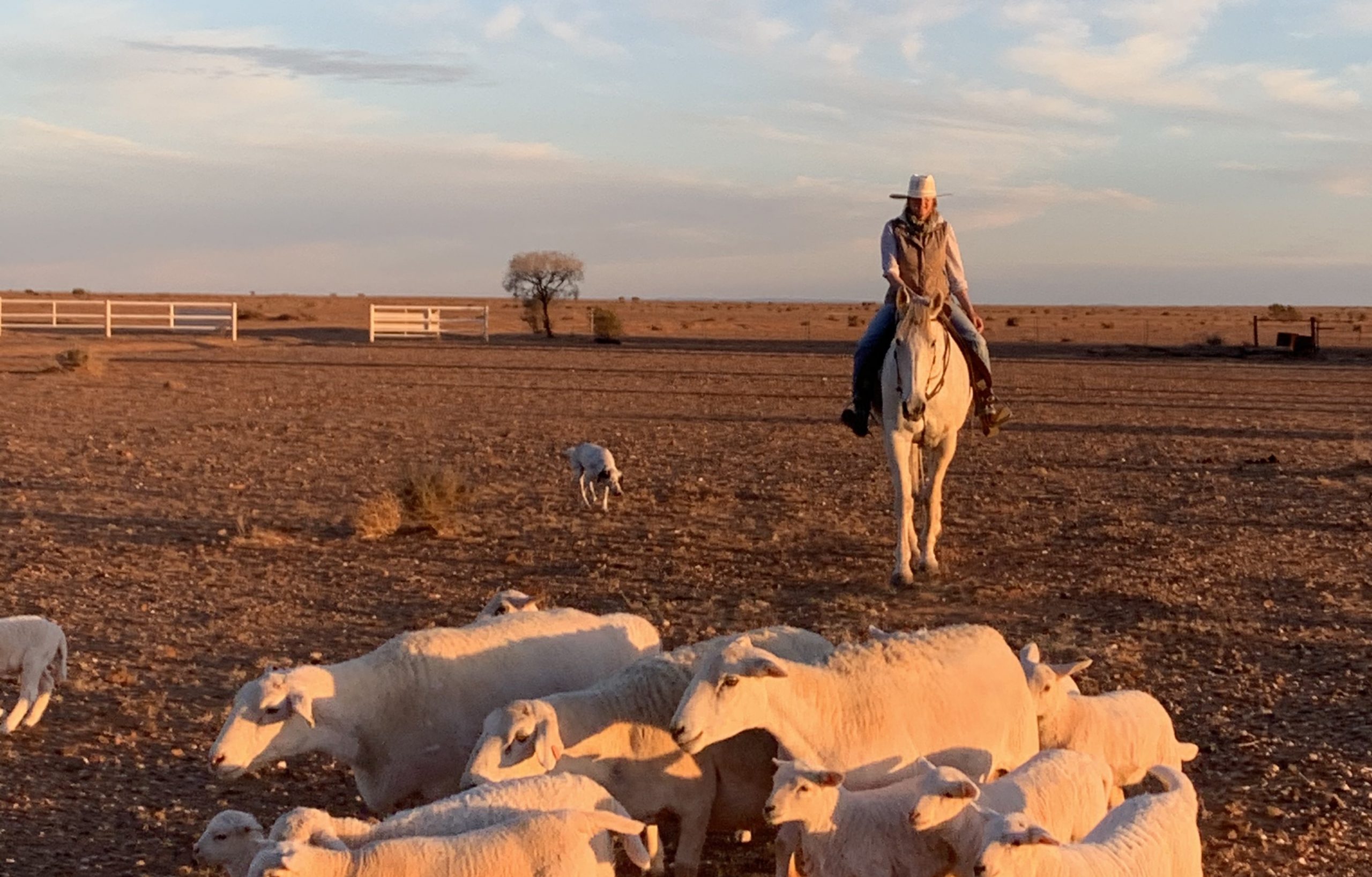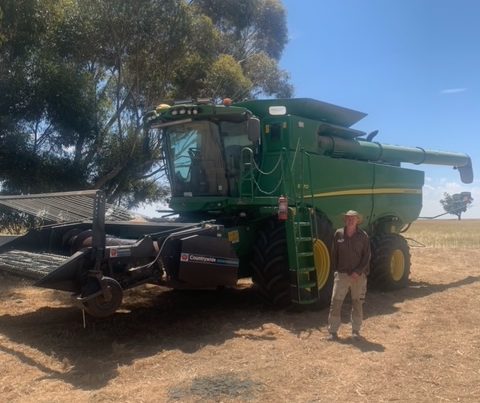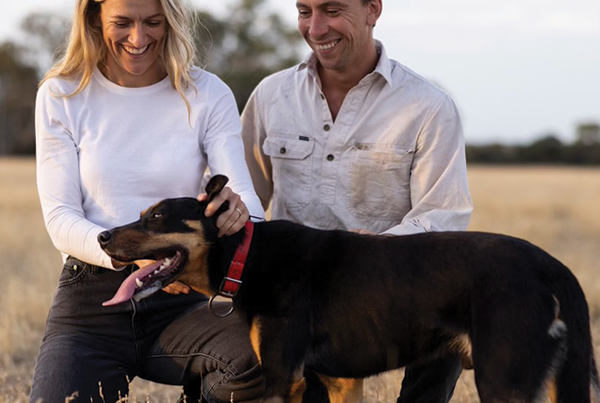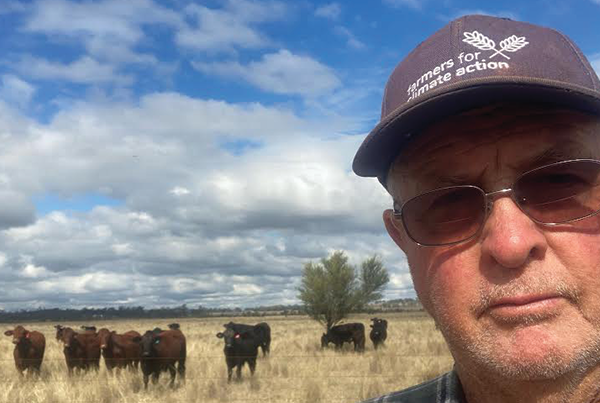At a glance
Who: Ellen Litchfield
What: Organic cattle and sheep pastoral property
Where: 650km north of Adelaide near Lake Eyre
Can you tell us about your property?
My husband and I live on Wilpoorinna station with my parents. My aunty and uncle live on the station next door and my brother and his wife live on the other neighbouring property. Together we run Australian White sheep (wool shedding) and Angus cross cattle. Our livestock graze native pastures across large areas on our pastoral leases with the three properties covering 600,000ha.
We live in the arid lands of Australia with the most volatile rainfall in the world, so whilst our mean is 160mm per year it is extremely varied. Since we are on pastoral leases our livestock only graze surplus native pastures. We do not reseed or fertilize over these huge areas, so ensuring that we do not degrade the natural pastures is paramount to our survival.
What first got you thinking about climate change?
Growing up I was acutely aware of the impact of droughts on my family. Climate change poses a new threat that droughts could get more severe and more common, so when I was moving back to the station it was at the forefront of my mind.
How has climate change impacted your farm business?
Weather in our area has never been reliable and has always followed extremes so I think in some ways this has made us better adapted to deal with climate change. However, longer times in drought means lower stocking rates and the importance of reacting quickly when pastures are becoming less available. Also, it means making sure we are managing feral pests and over abundant native species to ensure they do not cause land degradation during the prolonged dry spells.
The secondary impact of climate change on our business is erosion of our social license to farm ruminants. I think we need to be aware of the changing sentiment around cattle and eating beef. Whilst I believe cattle can definitely be a sustainable source of protein we cannot take our market for granted and need to demonstrate to the public that we are mitigating our emissions.
What are some of the climate-smart strategies you’ve been employing and how successful have they been?
We have swapped to solar water pumps and solar power for the homestead and these have been extremely successful. Most research on livestock emissions is done on more intensive farms, but some done in the Pilbara on large properties found that fossil fuel use on property is a far greater emitter than methane emissions so anything we can do is a huge help. We are also working with a NZ company to measure our carbon footprint.
Our properties are certified organic under the National Association for Sustainable Agriculture Australia (NASAA). This means we have a format to follow to ensure we are using natural methods to improve our soils, protecting biodiverse areas and maintaining sufficient ground cover. All of these factors help to make the property more resilient to droughts, which is our key goal.






